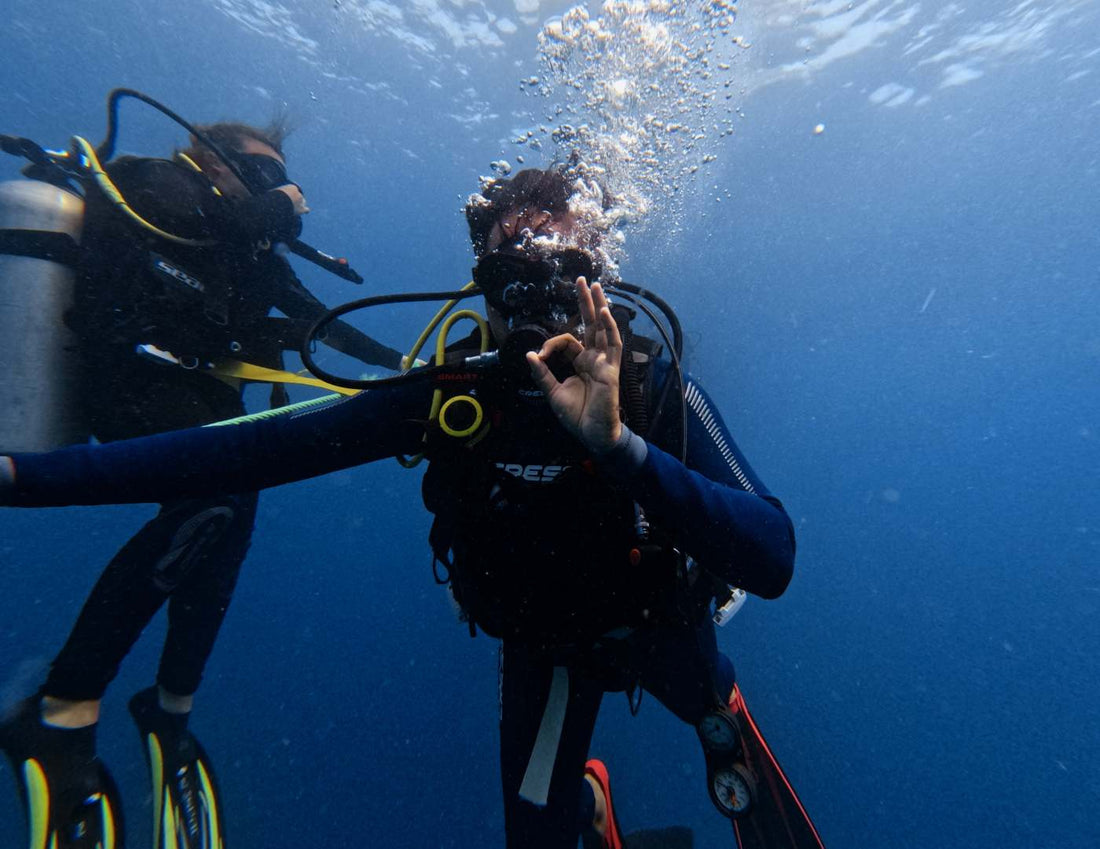
What is scuba diving? A simple guide for beginners
BY NAMUBAKShare
Scuba diving is much more than diving into the water: it's entering a silent world, full of life, colors, and sensations that only exist below the surface. In this guide, we explain what scuba diving is , how it works, and why more and more people are falling in love with this way of exploring the planet. If you're considering getting certified or simply want to understand this blue universe, this blog is for you.
What is diving and how does it work?
Scuba diving means staying underwater for an extended period using specialized equipment to breathe and move safely. Unlike snorkeling, scuba diving allows you to descend to greater depths and explore marine ecosystems in their most natural state.
Most recreational divers use a system called SCUBA ( Self-Contained Underwater Breathing Apparatus ), which consists of:
- A compressed air tank
- A regulator that delivers air at the proper pressure
- A compensating vest to control buoyancy
- Mask, fins and wetsuit (depending on the location)
The entire system is designed to help you breathe, move, and stay in control while you're underwater.
Most common types of diving
There are different ways to dive, each with a different purpose and technical level:
- Recreational diving : the most common type, geared toward enjoying the sea. This is the focus of the PADI Open Water course.
- Freediving or apnea : it is done without a tank, just by holding your breath.
- Technical diving : for greater depths and complex environments.
- Scientific or conservation diving : for research, coral restoration and species monitoring.
If you are just starting out, it is best to start with recreational diving.
What does it feel like to dive for the first time?
Scuba diving is a transformative experience. At first, it may feel strange to breathe underwater, especially if it's only through your mouth, but once you master it, it's like floating on another planet. Sounds quiet down, colors intensify, and your mind enters a state of calm and wonder.
Many divers agree that their first dive made them feel more present, alive, and connected to nature than ever before.

Who can learn to dive?
Diving is accessible to almost anyone. To become certified as an Open Water Diver, you'll need:
- Be at least 10 years old (although 12+ is ideal)
- Be in good general health (fill out a medical form)
- Have an attitude of learning and respect for the ocean
You don't need to be an athlete, just be willing to learn and listen to your instructors.
Can I dive if I can't swim very well?
Yes, it's possible! You don't need to be an expert swimmer to learn to scuba dive, but it's important to feel comfortable in the water . If you can float, stay calm, and move your arms and legs, you've already got the basics down. Explore our blog where we explain it in more depth.
Why get certified as a diver?
Although you can do introductory dives or guided dives without a certificate, obtaining your diving license opens up a world of possibilities and makes it safer:
- Greater safety in your dives
- Access to protected sites
- Travel the world diving
- Contribute to causes such as marine conservation
At Namubak, we work with The Clean Wave and BA Divers to ensure your dives are not only spectacular, but also conscious and responsible for the oceans.
Explore is Protect
Diving isn't just an activity; it's a way to reconnect with nature from a different perspective. Learning to dive transforms your outlook, teaches you to breathe calmly, and turns you into a guardian of the oceans. You don't need to be an athlete or a perfect swimmer; you just need curiosity and respect for the sea.
Enroll in our PADI certifications alongside The Clean Wave and BA Divers, and start diving in the most biodiverse waters on the planet.
👉 Find out about our upcoming certification dates

